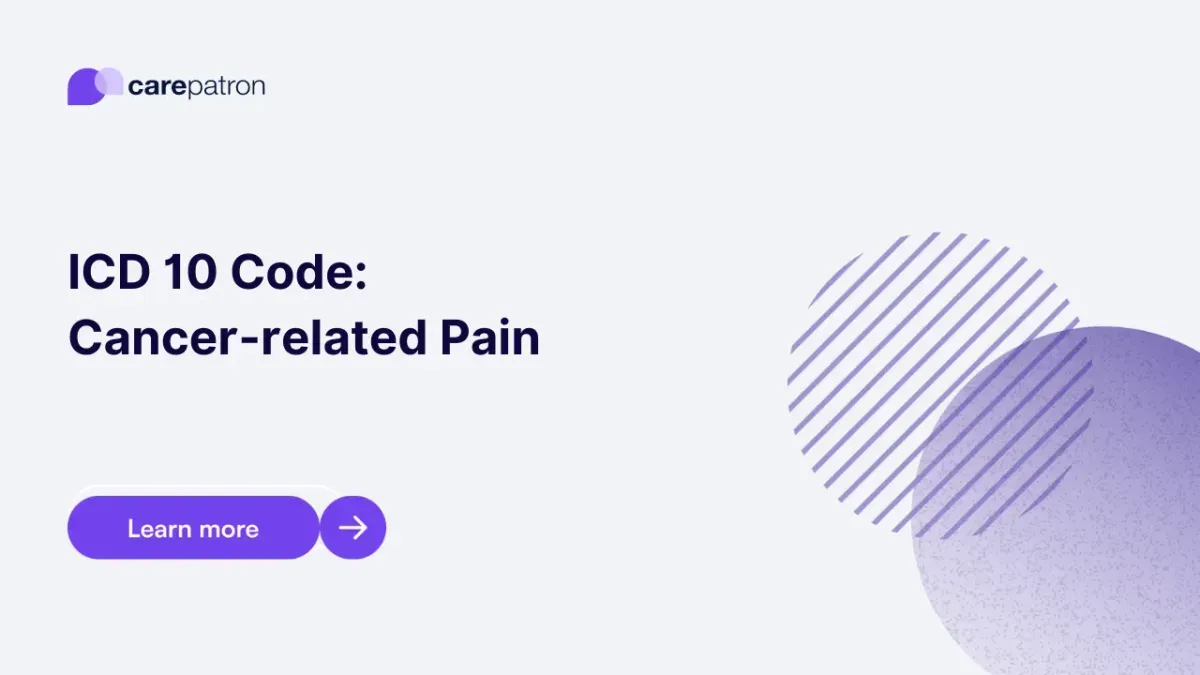
Cancer-related Pain ICD-10-CM Codes
Read this short guide and learn about cancer-related pain ICD codes you can use. Learn more about billing and clinical information here.
Use Code
Commonly asked questions
Yes. It is the only one. It accounts for malignant and benign neoplasms, as well as acute and chronic pain caused by neoplasms.
Yes, assuming that doing any of these successfully removes the cancer.
Over-the-counter pain relievers should help. Other forms of therapy like physical therapy and even acupuncture can help relieve the pain.
EHR and practice management software
Get started for free
*No credit card required
Free
$0/usd
Unlimited clients
Telehealth
1GB of storage
Client portal text
Automated billing and online payments
